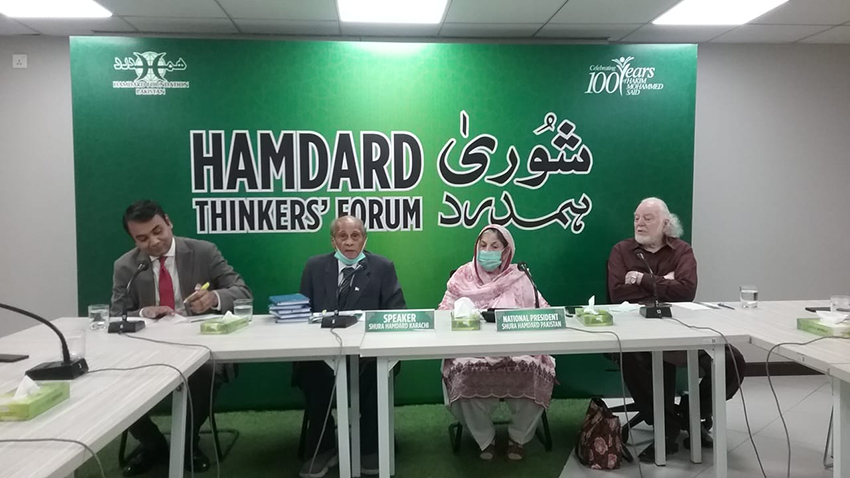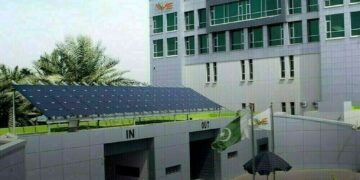To understand and provide suggestions on Pakistan’s economic challenges, Mrs. Sadia Rashid, President of Hamdard Foundation Pakistan (HFP) called upon Shura Hamdard’s session yesterday on the theme: “Country’s chaotic economic situation, how is improvement possible?” at Hamdard Corporate Head Office. The meeting was presided over by Speaker Shura, Justice (r) Haziq-ul-Khairi. Mahmood Arshad, an expert on economic affairs, was invited as a guest speaker.
He said that Pakistan had been trapped in a vicious circle of external loans due to a consistent trade deficit. “The country has to borrow from international financial institutions in order to meet its financial obligations on imports. Pakistan’s imports have gradually increased over time, whereas our exports remain stagnant, which is a matter of concern. Pakistan needs concrete steps to boost the country’s exports,” he said.
He added that positive signals had been received from friendly countries and the IMF.
He further said that along with the textile sector, other sectors would also have to be given facilities and incentives. “Baluchistan is rich in minerals, especially precious metals like graphite, which can be used to earn huge foreign exchange. There is a lot of room for improvement in the agriculture and fisheries sectors,” he said.
Prof. Dr. Ikhlaq Ahmed said that the present government had to make a solid plan for the adequate utilization of natural resources to increase economic activities in the country. “Development of minerals and agricultural resources with the help of modern technology requires comprehensive planning at the policy level,” he said.
Justice (Retd) Zia Pervez said that Pakistan’s economy had not been strengthened due to many factors, including some global conspiracies. The solution to Pakistan’s problems lies in political stability.
Zafar Iqbal said that small and medium enterprises were the backbone of any country’s economy. In this regard, laws and regulations must also be made business-friendly.
Ibnul Hassan Rizvi stressed the need for practical solutions to explore alternative energy sources to fuel the economy back on track. He added that modern technology for treating wastewater would provide much-needed water to industries and to the landscape.
Senator Abdul Haseeb Khan highlighted the importance of political vision and leadership to drive strong economic progress and development. He lamented the fact that amnesty schemes for dishonest segments of society greatly discourage honest taxpayers.
Naseem Bukhari was of the view that Pakistan’s tourism sector could become attractive to foreign investors if the right steps were taken in this regard, such as maintaining law and order.
Prof. Dr. Tanveer Khalid said that the present situation was demanding sacrifices from the entire nation. “The rulers must lead from the front by giving up their assets to pay off first IMF tranche,” she said.
Amir Taseen urged discouragement of lavish and unnecessary spending culture prevailing in society. He stressed an efficient and honest judicial system, which could give foreign investors a sense of hope for immediate redressal of their grievances.
Prof. Dr. Syed Shabib ul Hassan, Vice-Chancellor of Hamdard University, said: “Pakistan has an abundance of natural resources, which can be utilized for economic development. However, failure in the utilization of resources suggests that the fault lies in our social behavior. We need concrete planning to promote entrepreneurship and leadership in children from the primary school level. Only then will we be able to build our society.”


















